Understanding Autophagy: How Fasting Unleashes your Body's Cellular Renewal
Introduction to Autophagy
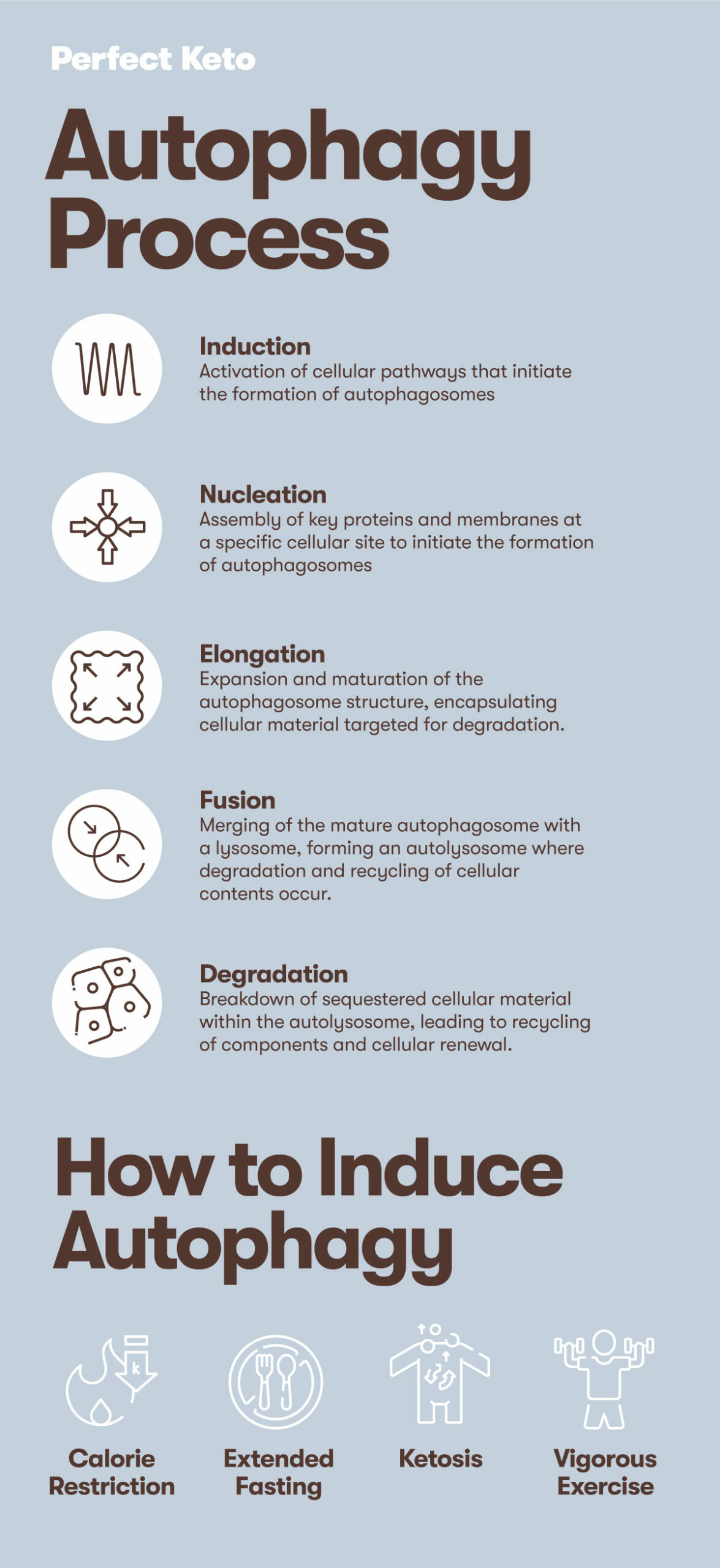 Source: perfectketo.com
Source: perfectketo.com
Autophagy, a physiological process that occurs within our cells, is gaining attention for its incredible health benefits. Derived from the Greek words "auto" meaning self and "phagy" meaning eating, autophagy can be understood as the body's way of self-cleaning and recycling.
At its core, autophagy involves the degradation and recycling of damaged or dysfunctional cellular components. During this process, the body breaks down unwanted proteins, organelles, and pathogens to generate energy and building blocks for new cellular structures.
Understanding autophagy is crucial because it plays a vital role in maintaining cellular health. By eliminating defective components and promoting the renewal of healthy ones, autophagy helps to prevent cell damage, reduce inflammation, and enhance overall cellular function.
One of the most effective ways to stimulate autophagy is through fasting. Extended periods of abstaining from food initiate a cellular response that triggers autophagy. As your body transitions into fasting mode and depletes its glycogen stores, it begins to rely on stored fat as an energy source. This metabolic shift activates autophagic pathways, promoting cellular renewal.
In the next section, we will explore what exactly autophagy entails and delve deeper into its numerous benefits for our bodies.
The concept of autophagy in cellular renewal
Autophagy, a process that plays a crucial role in cellular renewal, is defined as the body's way of recycling and eliminating damaged or dysfunctional components within our cells. It is like a cellular self-cleaning mechanism that breaks down and eliminates unnecessary or damaged organelles, proteins, and other cellular debris. This process allows cells to maintain optimal functioning and promotes overall cellular health.
During autophagy, the cell forms a double-membrane structure called an autophagosome around the targeted components, which are then transported to a lysosome for degradation and recycling. Through this process, the cell can eliminate toxic substances, remove misfolded proteins, and clear out damaged mitochondria or other organelles. In turn, this promotes the formation of new and healthy components within the cell.
By undergoing autophagy, cells can rejuvenate themselves and function more efficiently. This process of cellular renewal is essential for maintaining optimal health and preventing the buildup of harmful substances within our cells. Autophagy is an intricate biological process that highlights the incredible ability of our bodies to cleanse and regenerate at a cellular level.
How fasting triggers autophagy in the body
 Source: zerolongevity.com
Source: zerolongevity.com
Fasting has been found to be one of the most effective ways to trigger autophagy in the body. When we abstain from consuming food for a certain period of time, usually between 12 to 48 hours, the body begins to enter a state of metabolic stress. During this time, the body's energy sources become depleted, and it needs to find alternative ways to fuel itself.
In response to this metabolic stress, the body starts to undergo autophagy as a survival mechanism. Autophagy allows cells to recycle damaged or dysfunctional components and use them as an energy source. This process helps the body eliminate toxins and waste materials, leading to cellular renewal and regeneration.
Furthermore, fasting stimulates the release of ketones, which are molecules produced by the liver when there is a lack of glucose for energy. Ketones have been shown to enhance autophagy and promote cellular health.
By incorporating fasting into our lifestyle on a regular basis, we can harness the power of autophagy and reap its numerous benefits for our overall well-being.
What is Autophagy?
 Source: spencerinstitute.com
Source: spencerinstitute.com
Autophagy is a fundamental cellular process that plays a crucial role in maintaining the health and stability of our cells. Derived from the Greek words "auto" meaning self and "phagy" meaning to eat, autophagy literally translates to "self-eating." It is a process by which our cells recycle and degrade damaged organelles, proteins, and other cellular debris. This mechanism helps to ensure that our cells function optimally and remain free from potentially harmful substances.
During autophagy, cells form double-membrane structures called autophagosomes that engulf and enclose the unwanted cellular components. These autophagosomes then fuse with lysosomes, specialized compartments within the cell that contain enzymes capable of breaking down the engulfed material. The resulting degradation products are then recycled by the cell to generate energy or used as building blocks for new cellular components.
Autophagy serves as a vital housekeeping mechanism for our cells, ensuring their proper functioning, adaptation to stress, and longevity. It also plays a critical role in removing damaged proteins and dysfunctional organelles, thereby preventing the accumulation of harmful substances within cells.
Understanding how autophagy works and its importance in cellular health provides valuable insights into how fasting can stimulate this process to unleash the body's potential for cellular renewal.
The definition and process of autophagy
 Source: cdn.shopify.com
Source: cdn.shopify.com
Autophagy, derived from the Greek words "auto" meaning self and "phagy" meaning to eat, refers to the process by which cells in the body recycle and renew their components. It is a natural and vital cellular process that plays a crucial role in maintaining overall health and well-being.
During autophagy, the cell segregates damaged or dysfunctional organelles, proteins, and other cellular debris into specialized compartments called autophagosomes. These autophagosomes then fuse with lysosomes, which contain enzymes that break down the captured material into simpler components. Through this degradation process, valuable molecules are released and recycled to support the cell's energy needs and repair mechanisms.
Autophagy serves as a quality control mechanism by removing accumulated waste products and promoting cellular rejuvenation. It is an essential component of cellular homeostasis and ensures the efficient removal of harmful substances, thus safeguarding against various diseases.
Overall, autophagy enables cells to adapt to stress conditions, maintain proper function, and preserve cellular integrity for optimal health. Its significance cannot be understated as it helps promote longevity and mitigate age-associated deterioration.
How autophagy benefits cellular health
Autophagy, the natural process by which cells recycle and eliminate damaged or dysfunctional components, plays a critical role in maintaining cellular health. By promoting the removal of harmful substances and recycling of valuable resources, autophagy helps prevent the accumulation of toxic materials within cells.
One of the key benefits of autophagy is its ability to enhance cellular cleansing and detoxification. Through the removal of damaged proteins and organelles, autophagy helps maintain the integrity and functionality of cells. This process not only removes waste but also helps generate new building blocks for cellular repair and regeneration.
Autophagy also supports energy metabolism by providing cells with alternative sources of fuel during times of nutrient scarcity or stress. By breaking down unwanted cellular components, such as excess fats or proteins, autophagy generates energy substrates that can be utilized to sustain cell survival and function.
Furthermore, autophagy has been linked to various anti-aging effects. By clearing out accumulated debris, this process helps delay cellular senescence and promotes longevity. Autophagy also plays a vital role in immune cell function, assisting in the elimination of pathogens and preventing infection.
Overall, autophagy's ability to cleanse, energize, and rejuvenate cells contributes significantly to their overall health and function. Understanding the benefits of autophagy underscores its importance in maintaining optimal cellular well-being.
How Fasting Stimulates Autophagy
 Source: draxe.com
Source: draxe.com
Fasting has been found to be one of the most effective ways to stimulate autophagy in the body. When we fast, our body enters a state of energy deprivation, which triggers a cellular response to conserve energy and promote survival. This response includes the activation of autophagy.
During fasting, the body starts breaking down its own damaged and unnecessary cells, proteins, and organelles through autophagy. As the body lacks an external source of nutrients, it turns to its internal reserves for energy. Autophagy allows the body to recycle and reuse these internal components, promoting cellular rejuvenation and renewal.
The duration of fasting plays a crucial role in triggering autophagy. Generally, it takes around 12-16 hours of fasting for autophagy to kick in. However, longer fasting periods can further enhance the process. For example, intermittent fasting protocols like 24-hour fasts or alternate-day fasting have been shown to induce more robust autophagy.
In summary, fasting stimulates autophagy by initiating a cellular response to conserve energy during periods of low nutrient availability. This process allows the body to maintain cellular health by recycling and renewing damaged components, leading to overall benefits for our well-being.
The connection between fasting and autophagy
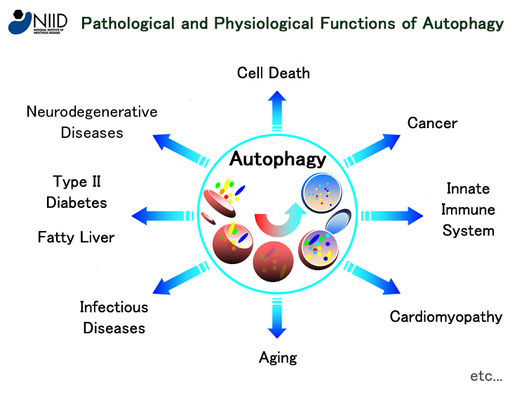 Source: doc.vortala.com
Source: doc.vortala.com
Fasting has been found to be one of the most effective ways to stimulate autophagy in the body. When we fast, our body switches from using glucose as its primary source of energy to using stored fat. This shift in metabolism triggers a cascade of cellular responses, including the activation of autophagy.
During fasting, when the body is not consuming any food or calories, there is a decrease in insulin and an increase in glucagon levels. This hormonal shift sends a signal to the cells that nutrients are scarce, leading them to start breaking down damaged proteins and organelles through autophagy.
Research has shown that fasting for a certain duration is required to induce significant levels of autophagy. The specific time frame varies depending on individual factors such as age, sex, and overall health. Generally, it's believed that 12-16 hours of fasting can lead to some level of autophagy activation.
By understanding the connection between fasting and autophagy, individuals can leverage this natural process to enhance cellular renewal and promote overall health. Incorporating regular fasting periods into one's lifestyle can unlock the incredible benefits of this cellular cleanup mechanism.
Different fasting methods to induce autophagy
 Source: i.ytimg.com
Source: i.ytimg.com
One of the most effective ways to induce autophagy in the body is through fasting. Fasting refers to voluntarily abstaining from food and, in some cases, beverages for a specific period of time. Different fasting methods can help trigger autophagy and promote cellular renewal.
One popular method is intermittent fasting, which involves cycling between periods of eating and fasting. The most common approach is the 16/8 method, where individuals fast for 16 hours and consume all their calories within an 8-hour window. This allows for a sufficient period of time for autophagy to occur.
Another method is alternate-day fasting, where individuals restrict their calorie intake every other day. This extended period without food forces the body to rely on its stored energy and activates autophagy as a survival mechanism.
Extended fasting is another approach that involves fasting for longer periods, typically 24-72 hours or even longer. This prolonged restriction of food intake stimulates autophagy more intensely.
It is important to note that everyone's response to fasting may vary, and it's advisable to consult with a healthcare professional before attempting any prolonged or extreme fasting methods.
Benefits of Autophagy
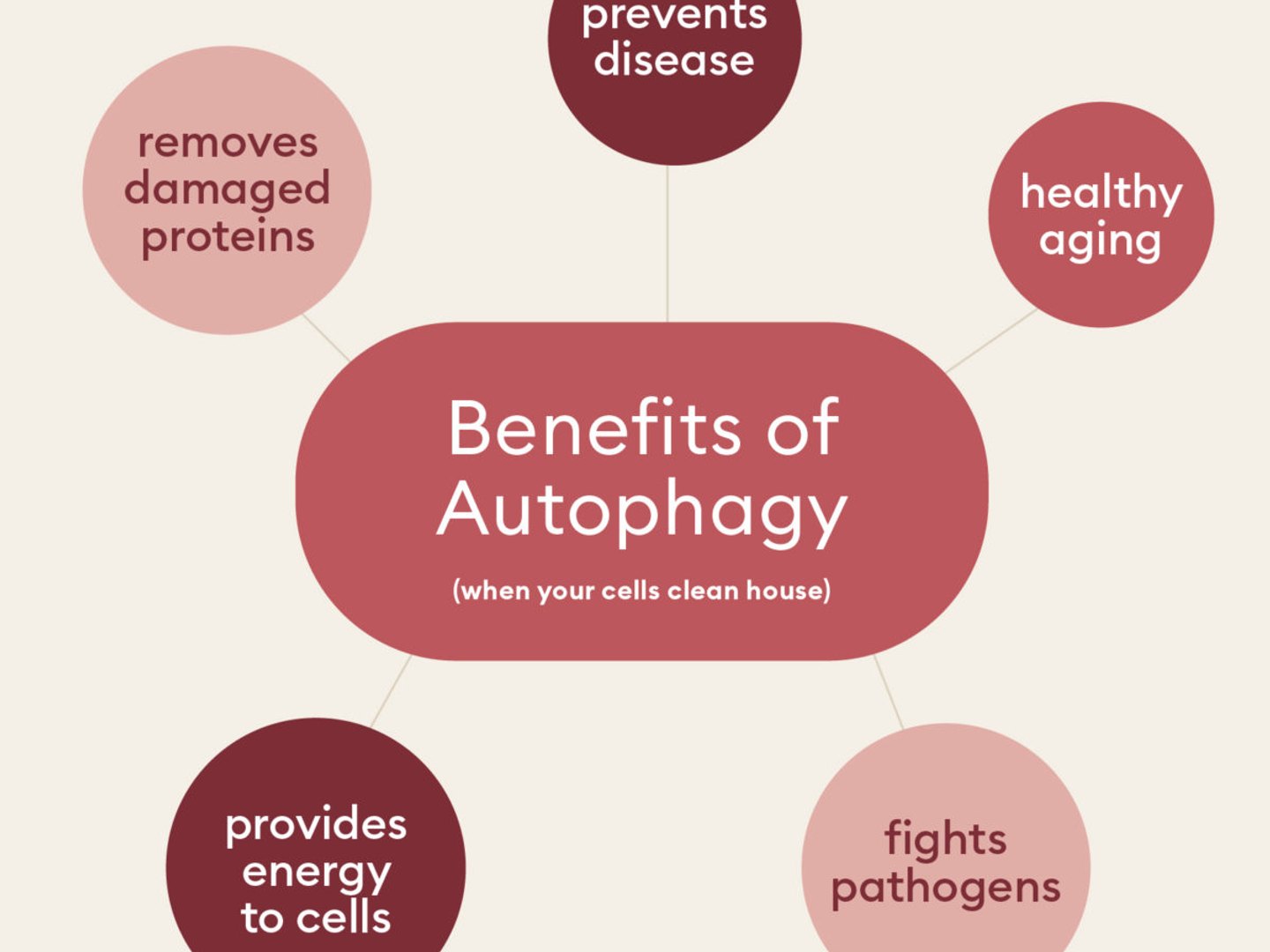 Source: cdn.sanity.io
Source: cdn.sanity.io
Autophagy, the process of cellular renewal, holds numerous benefits for our overall health and well-being. When our bodies undergo autophagy, damaged or dysfunctional components within our cells are broken down and recycled. This process allows for the regeneration of healthier cells and the removal of harmful substances from our bodies.
One significant benefit of autophagy is its ability to enhance cell regeneration and promote longevity. By clearing out old and damaged cellular structures, autophagy helps to rejuvenate our cells and slow down the aging process. Additionally, autophagy plays a crucial role in preventing age-related diseases such as Alzheimer's and Parkinson's disease.
Furthermore, autophagy aids in weight loss by promoting the breakdown of stored fats within our cells. When we engage in fasting or other methods that induce autophagy, our metabolic processes become more efficient in utilizing stored energy, leading to weight loss.
To reap the benefits of autophagy, incorporating fasting or intermittent fasting into your routine is highly recommended. By giving your body a break from constant digestion, you allow it to enter a state of autophagy and experience its rejuvenating effects.
In conclusion, understanding the benefits of autophagy can motivate us to incorporate practices like fasting that stimulate this cellular renewal process. This can significantly impact our overall health by promoting cell regeneration, preventing age-related diseases, aiding in weight loss, and improving metabolic processes.
Enhancing cell regeneration and longevity through autophagy
Autophagy, the natural process of cellular "self-eating," plays a vital role in enhancing cell regeneration and promoting longevity. By selectively removing damaged or unnecessary components within cells, autophagy ensures their proper functioning and maintains overall cellular health.
When autophagy is activated, the cell breaks down these unwanted components, such as misfolded proteins or damaged mitochondria, into their basic building blocks. These building blocks are then recycled to generate new molecules and fuel essential cellular processes. This recycling process allows cells to eliminate toxins and maintain optimal functionality.
Moreover, autophagy helps to maintain the integrity of the genetic material within cells. It safeguards against genome instability and reduces the risk of mutations that can lead to cancer or other age-related diseases. By eliminating potentially harmful substances and repairing DNA damage, autophagy supports healthy aging and extends the lifespan of cells.
In addition to promoting cell regeneration, autophagy also contributes to overall longevity. By removing damaged components and clearing out cellular debris, autophagy optimizes energy utilization in the body. This enhanced energy metabolism can ultimately have positive effects on overall health and lifespan.
Incorporating fasting or other methods that induce autophagy can provide numerous benefits for enhancing cell regeneration and prolonging cellular health.
The role of autophagy in preventing age-related diseases
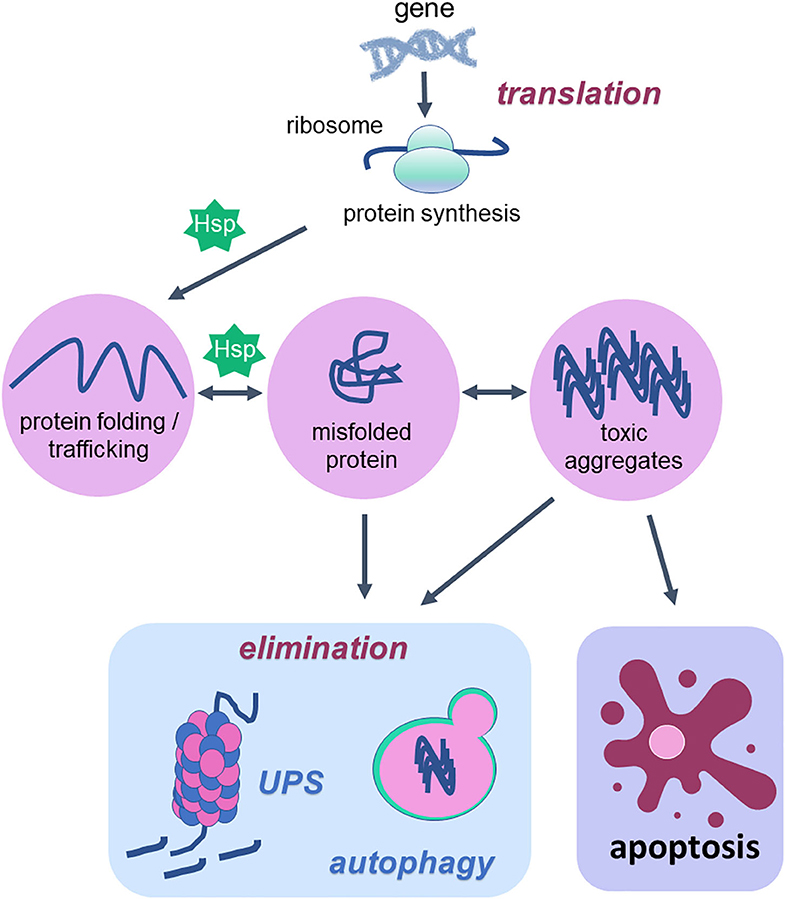 Source: www.frontiersin.org
Source: www.frontiersin.org
Autophagy plays a crucial role in preventing age-related diseases by promoting the removal of damaged cellular components and reducing the build-up of toxic protein aggregates. As we age, our cells become more susceptible to damage and accumulation of harmful substances, leading to an increased risk of diseases such as Alzheimer's, Parkinson's, and cardiovascular disorders.
Autophagy acts as a protective mechanism by recycling these damaged components and clearing out harmful proteins that can impair cellular function. Through autophagy, the body's cells can maintain their health and functionality, which is vital for preventing the onset of age-related diseases.
Furthermore, autophagy has been found to enhance the immune system's response to pathogens and eliminate cancerous cells. By eliminating damaged or abnormal cells, autophagy helps prevent the development of cancer and other age-related diseases.
Research suggests that stimulating autophagy through fasting can have significant implications for disease prevention. Fasting triggers autophagy by creating a state of nutrient deprivation, forcing the body to rely on stored resources and initiate cellular cleanup processes. This supports overall cellular health and reduces the risk of age-related diseases.
Incorporating fasting or other techniques that induce autophagy into one's lifestyle may offer a promising approach towards preventing age-related diseases and promoting longevity. Researchers continue to investigate the connection between autophagy and disease prevention, providing new insights into maintaining optimal health as we age.
Autophagy and Weight Loss

Autophagy, the natural process of cellular renewal, has been found to play a significant role in weight loss. When the body enters a fasting state, autophagy is triggered as a survival mechanism to break down and recycle damaged cells for energy. This process is particularly beneficial for those looking to shed excess pounds.
During autophagy, the body selectively targets and removes dysfunctional mitochondria and damaged proteins, which are often associated with obesity. This helps improve metabolic function and enhances fat oxidation, making it easier for individuals to achieve their weight loss goals.
Furthermore, autophagy promotes the production of ketones, which can suppress appetite and reduce food cravings. This can naturally lead to a decreased calorie intake and facilitate weight loss.
It is important to note that fasting alone may not be enough to achieve sustainable weight loss. It should be coupled with a balanced diet and regular exercise for optimal results. Nonetheless, understanding the relationship between autophagy and weight loss can provide valuable insights for individuals striving to achieve their desired body composition.
How autophagy promotes weight loss
Autophagy, the process of cellular renewal, not only plays a crucial role in maintaining cellular health but also has the potential to promote weight loss. When the body enters a fasting state, autophagy is triggered as a survival mechanism. During this time, the body starts breaking down and recycling damaged cells and proteins for energy.
As autophagy clears out dysfunctional components and waste from cells, it also helps to regulate metabolism. By improving insulin sensitivity and promoting the breakdown of fat stores, autophagy actively supports weight loss efforts.
Moreover, autophagy can help reduce inflammation in adipose tissue and improve mitochondrial function, which are both essential for efficient fat burning. By enhancing these processes, autophagy fosters a calorie deficit and accelerates weight loss.
Research suggests that intermittent fasting is an effective way to induce autophagy and harness its weight loss benefits. By incorporating fasting periods into your routine, you can tap into the power of autophagy to promote healthy weight management alongside other dietary and lifestyle changes.
The impact of fasting on metabolic processes
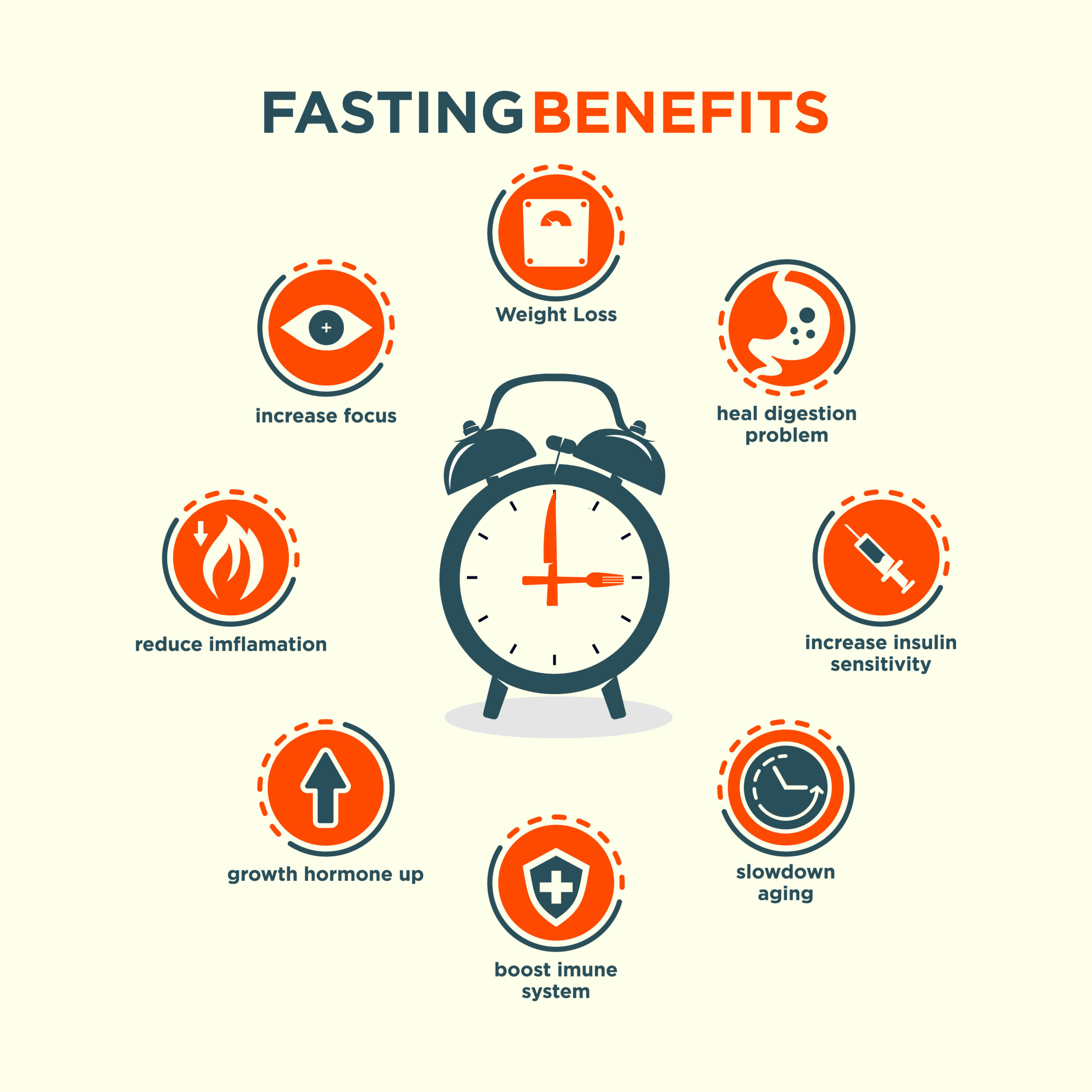 Source: www.doctorkiltz.com
Source: www.doctorkiltz.com
Fasting has a significant impact on metabolic processes within the body. When we fast, our bodies enter a state of energy conservation, as it no longer has a constant supply of glucose from food. As a result, the body begins to rely on stored energy sources, such as glycogen and fatty acids.
During fasting, the body undergoes a series of metabolic changes. Firstly, insulin levels decrease, leading to a decrease in glucose uptake by cells. This forces the body to turn to alternative fuel sources like stored fat for energy. As fatty acids are released from fat stores and broken down, they are converted into ketone bodies in the liver.
The production and utilization of ketone bodies during fasting play an essential role in supporting brain function and other bodily processes. Ketones serve as an efficient and preferred energy source for various tissues when glucose availability is limited.
Furthermore, fasting enhances hormonal balance by increasing human growth hormone (HGH) levels. HGH helps facilitate fat burning while preserving lean muscle mass during periods of food scarcity.
Overall, fasting influences metabolic processes by promoting fat utilization for energy and adjusting hormonal responses to optimize bodily functions during periods of limited food intake. This metabolic adaptation is closely tied to the stimulation of autophagy and its associated benefits for cellular renewal and overall health.
Techniques to Support Autophagy
Techniques to Support Autophagy:
There are several strategies and techniques you can employ to support and enhance autophagy in your body. One of the most effective methods is intermittent fasting. This involves alternating periods of eating and fasting, giving your body a chance to enter a state of autophagy. By extending the duration of your fast, you can increase the levels of autophagy in your cells.
Another technique is calorie restriction, which involves reducing your overall daily caloric intake. This stimulates autophagy as the body seeks alternative sources of energy and begins breaking down damaged cells for fuel.
In addition to fasting and calorie restriction, certain dietary choices can also support autophagy. Consuming foods rich in antioxidants, such as fruits, vegetables, and green tea, can help protect against oxidative damage and promote cellular renewal.
Exercise is another important factor in supporting autophagy. Regular physical activity has been shown to activate autophagy in various tissues throughout the body.
By incorporating these techniques into your lifestyle, you can optimize the process of autophagy and promote cellular renewal for improved overall health and well-being.
Intermittent fasting and its effect on autophagy
 Source: doc.vortala.com
Source: doc.vortala.com
Intermittent fasting is a popular fasting method that involves alternating periods of eating and fasting. It has been found to have a significant impact on autophagy in the body.
During the fasting hours, when no caloric intake is consumed, the body enters a state of energy deprivation. This triggers autophagy as a survival response to break down and recycle damaged or unnecessary cellular components.
Studies have shown that intermittent fasting can stimulate autophagy and enhance cellular renewal. It can increase the levels of key autophagy markers, such as LC3-II and Beclin-1, in various tissues of the body. Additionally, intermittent fasting has been observed to optimize mitochondrial function and reduce oxidative stress, further supporting an environment conducive to autophagy.
Moreover, intermittent fasting has also been linked to numerous health benefits beyond autophagy. These include improved insulin sensitivity, weight management, enhanced cognitive function, and reduced inflammation.
Overall, incorporating intermittent fasting into one's lifestyle can be an effective strategy to stimulate autophagy and promote cellular renewal for optimal health and longevity.
Nutritional approaches to enhance autophagy
Nutritional approaches play a crucial role in enhancing autophagy, alongside fasting. While fasting stimulates autophagy by depriving the body of nutrients, certain dietary strategies can further support this cellular renewal process.
One such approach is incorporating a low-carbohydrate, high-fat (LCHF) diet. By reducing carbohydrate intake and increasing healthy fats, the body enters a state of ketosis. During ketosis, the body produces ketones from fat stores, which can enhance autophagy.
Another way to enhance autophagy through nutrition is by including foods that promote autophagy in your diet. Some examples include green tea, turmeric, resveratrol-rich foods like grapes and berries, and cruciferous vegetables such as broccoli and cauliflower. These foods contain compounds that activate autophagy pathways in the body.
Furthermore, intermittent fasting combined with specific nutrients can also boost autophagy. For instance, consuming omega-3 fatty acids found in fish oil or supplementing with vitamin D has shown to increase autophagy levels.
It's important to note that while these nutritional approaches support autophagy, they should be used in conjunction with fasting for optimal results. Consulting with a healthcare professional or registered dietitian can help you develop a comprehensive plan tailored to your specific needs and goals.
Other Factors Influencing Autophagy
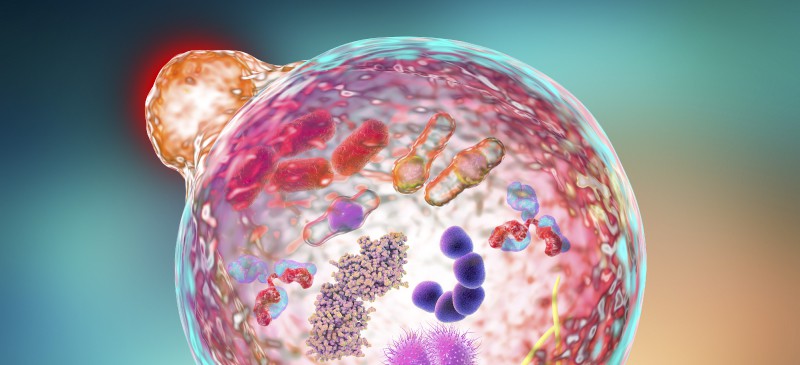 Source: draxe.com
Source: draxe.com
In addition to fasting, there are other factors that can influence the process of autophagy in the body. One important factor is exercise. Regular physical activity has been shown to stimulate autophagy, especially in skeletal muscle cells. Exercise not only helps maintain cellular health and function but also increases the production of proteins involved in autophagy.
On the other hand, sleep deprivation can have a negative impact on autophagy. Lack of sufficient sleep disrupts the body's natural circadian rhythm and can impair autophagy processes. Studies have found that sleep deprivation can lead to an accumulation of damaged proteins and organelles within cells, which can contribute to various health issues.
Furthermore, certain medications and diseases may affect autophagy levels in the body. For example, some research suggests that certain cancer treatments may alter autophagy pathways, potentially affecting treatment outcomes. Additionally, certain neurological conditions, such as Parkinson's disease and Alzheimer's disease, have been associated with impaired autophagy.
Understanding these factors that influence autophagy can help individuals make informed choices about their lifestyle habits and medication use to promote optimal cellular health and function.
Exercise and autophagy: the relationship explained
Exercise and autophagy share a complex and mutually beneficial relationship within our bodies. When we exercise, not only does it support our overall fitness and well-being, but it also has a direct impact on autophagy - the cellular renewal process.
Engaging in physical activity, such as aerobic exercise or resistance training, can stimulate autophagy in our cells. During exercise, the body undergoes stress, which prompts the activation of various pathways involved in autophagy. This process helps to remove damaged or dysfunctional cellular components, making way for new and healthier ones.
Furthermore, regular exercise has been shown to enhance the efficiency of autophagy. It increases mitochondrial function and turnover, leading to improved energy production within cells. Additionally, exercise can boost the production of growth factors that contribute to muscle repair and growth.
However, it is important to note that excessive or prolonged intense exercise may have detrimental effects on autophagy. Overtraining can lead to chronic inflammation and oxidative stress, impairing the proper functioning of autophagy.
Incorporating regular moderate-intensity exercise into your routine can support optimal autophagic activity. By doing so, you promote cellular rejuvenation and maintain overall cellular health. So get moving and witness the empowering relationship between exercise and autophagy firsthand.
Sleep deprivation and its impact on autophagy
Sleep deprivation is a common issue in today's fast-paced world, and its effects on our health have been widely studied. One area of interest is the impact of sleep deprivation on autophagy, the body's cellular renewal process. Research has shown that lack of sleep can disrupt autophagy and negatively affect cellular health.
During sleep, our bodies go through various stages, including REM (rapid eye movement) and non-REM sleep. It is during these stages that autophagy is activated to clean up damaged cells and remove toxins. However, when we are sleep deprived, this important process can be impaired.
Studies have revealed that sleep deprivation can reduce the number of autophagosomes, which are responsible for carrying out autophagy. Additionally, it can lead to an imbalance in the levels of key proteins involved in autophagy regulation.
Furthermore, chronic sleep deprivation has been linked to an increased risk of neurodegenerative diseases such as Alzheimer's and Parkinson's disease, which are also associated with impaired autophagy.
To support healthy autophagy and overall cellular health, it is essential to prioritize sufficient and quality sleep. Creating a relaxing bedtime routine, maintaining a consistent sleep schedule, and creating a conducive sleep environment can all contribute to promoting optimal autophagy function.
Autophagy and Disease Prevention
 Source: advances.nutrition.org
Source: advances.nutrition.org
Autophagy, the process of cellular self-eating, plays a crucial role in preventing various diseases. The activation of autophagy aids in eliminating damaged proteins and organelles from cells, reducing the risk of diseases such as cancer and neurodegenerative disorders.
One significant connection lies between autophagy and cancer prevention. Autophagy helps remove harmful substances and prevents the accumulation of damaged DNA, reducing the likelihood of tumor formation. Furthermore, autophagy facilitates the elimination of cancer cells, enhancing the effectiveness of chemotherapy treatments.
In neurodegenerative diseases like Alzheimer's and Parkinson's, autophagy serves as a protective mechanism. By clearing out toxic proteins that contribute to neuronal damage, autophagy prevents the progression of these disorders.
Understanding the role of autophagy in disease prevention highlights its potential as a therapeutic target. Researchers are exploring ways to modulate autophagy to develop novel treatments for various conditions.
By fostering cellular renewal through autophagy, individuals may reduce their risk of developing age-related diseases. Incorporating fasting or other methods to stimulate autophagy could be a proactive approach towards maintaining overall health and well-being.
Autophagy as a protective mechanism against cancer
Autophagy, the cellular process of self-degradation and recycling, has been found to play a crucial role in protecting against cancer. When autophagy is activated, damaged or dysfunctional cellular components are recognized and eliminated, reducing the risk of mutations and the formation of cancerous cells.
Research has shown that autophagy helps maintain genomic stability by clearing damaged DNA, which can prevent the development of cancer. Additionally, autophagy can limit inflammation within cells, reducing the potential for chronic inflammation that can contribute to tumor growth.
Furthermore, autophagy plays a role in inhibiting angiogenesis, the process by which tumors form new blood vessels to acquire nutrients. By restricting the blood supply to tumors, autophagy can help starve cancer cells and impede their growth.
Studies have also suggested that fasting-induced autophagy may enhance chemotherapy efficacy by selectively targeting cancer cells while protecting healthy cells. This phenomenon has significant implications for developing novel treatment strategies.
Overall, understanding how autophagy acts as a protective mechanism against cancer opens up new possibilities for therapeutic intervention and provides further motivation for incorporating fasting or other methods to induce autophagy into our lifestyles.
The connection between autophagy and neurodegenerative diseases
Research has shown a clear link between autophagy and neurodegenerative diseases. Autophagy plays a crucial role in the clearance of damaged proteins and organelles in the brain. In neurodegenerative diseases such as Alzheimer's, Parkinson's, and Huntington's disease, there is evidence of impaired autophagy.
In Alzheimer's disease, there is an accumulation of toxic protein aggregates called amyloid beta plaques. Autophagy dysfunction leads to the buildup of these plaques, resulting in neuronal cell death and cognitive decline.
Similarly, in Parkinson's disease, there is a buildup of abnormal protein structures known as Lewy bodies. Autophagy dysfunction prevents the clearance of these toxic aggregates, leading to the degeneration of dopaminergic neurons.
Huntington's disease is characterized by the accumulation of mutant huntingtin protein aggregates within neurons. Impaired autophagy further contributes to the pathology by hindering the removal of these aggregates.
Understanding the connection between autophagy and neurodegenerative diseases is crucial for developing potential therapeutic strategies. By promoting autophagy, it may be possible to enhance the clearance of toxic proteins and provide neuroprotection against these debilitating conditions. Further research is needed to uncover specific mechanisms underlying autophagy impairment in neurodegeneration and identify potential therapeutic targets for intervention.
Conclusion
In conclusion, understanding the process of autophagy and how fasting stimulates it is crucial for harnessing the power of cellular renewal in the body. Autophagy, the self-cleansing mechanism of the cells, plays a vital role in maintaining cellular health and longevity. By triggering autophagy through fasting, individuals can promote cell regeneration and reduce the risk of age-related diseases.
Different fasting methods, such as intermittent fasting or extended periods of calorie restriction, can induce autophagy. These approaches create a state of metabolic stress that encourages cells to break down and recycle damaged proteins and organelles. This not only helps in weight loss but also supports overall metabolic wellbeing.
To further support autophagy, nutritional approaches like consuming a nutrient-rich diet with adequate amounts of vitamins and minerals are beneficial. Regular exercise and prioritizing quality sleep also play a crucial role in promoting autophagy.
Understanding the connection between autophagy and disease prevention shows that it acts as a protective mechanism against cancer and neurodegenerative diseases.
Incorporating fasting techniques and lifestyle modifications to promote autophagy can unlock the body's ability to renew its cells and enhance overall health.
The importance of understanding autophagy and its role in cellular renewal
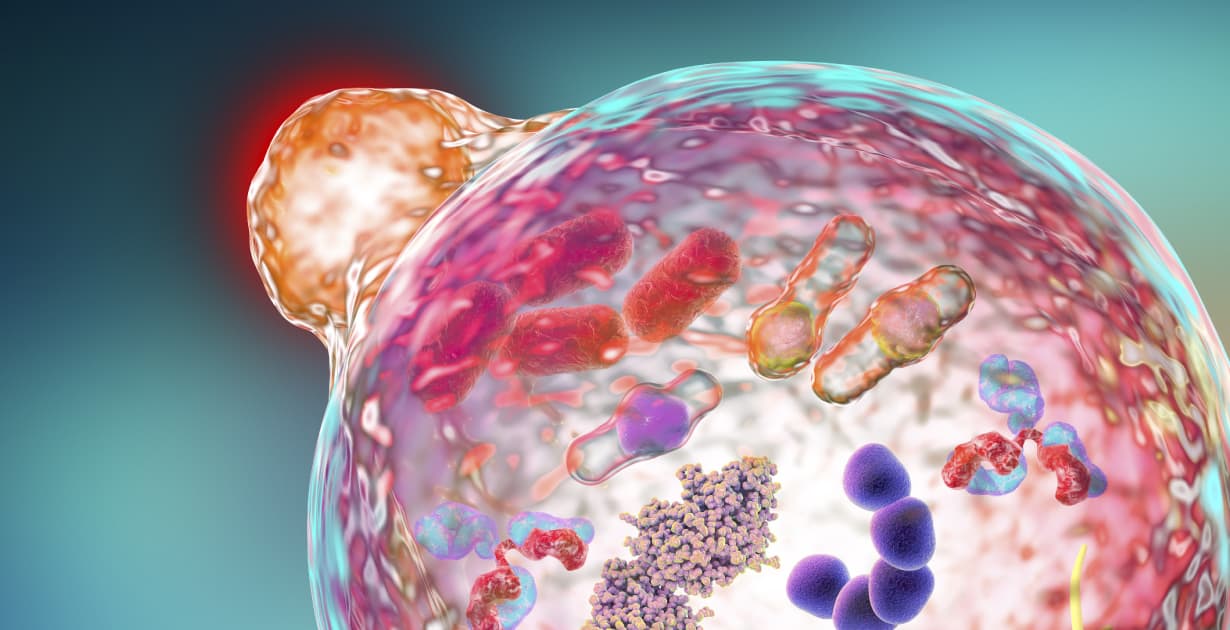 Source: draxe.com
Source: draxe.com
Understanding autophagy and its role in cellular renewal is crucial for maintaining optimal health. Autophagy is a natural cellular process that allows the body to recycle damaged or dysfunctional cellular components, ensuring their removal and promoting the regeneration of new, healthier cells.
By comprehending how autophagy works, individuals can harness its potential benefits and take active steps to stimulate this process. Autophagy not only aids in eliminating toxic substances from cells but also plays a vital role in preventing the buildup of protein aggregates and damaged organelles that can lead to various diseases.
Moreover, understanding autophagy can help individuals make informed decisions about their diet and lifestyle choices. By incorporating fasting or other autophagy-inducing techniques into their routine, they can promote cellular renewal and potentially reduce the risk of age-related diseases.
In summary, understanding autophagy empowers individuals to take control of their health by actively stimulating this natural cellular process. By doing so, they can support the body's ability to renew and regenerate cells, promoting overall well-being and potentially prolonging lifespan.
Actionable steps to incorporate fasting for autophagy stimulation
 Source: i.ytimg.com
Source: i.ytimg.com
When it comes to incorporating fasting for autophagy stimulation, there are a few actionable steps that you can follow. Firstly, it is important to start with intermittent fasting, which involves restricting your eating window to a certain number of hours per day. This can be done by skipping breakfast and only consuming meals within a specific time frame, such as between 12pm and 8pm.
Additionally, longer periods of fasting can also be beneficial for autophagy. One approach is the 24-hour fast, where you refrain from consuming any calories for a full day. Another method is the 16:8 fast, where you fast for 16 hours and consume all your calories within an 8-hour period. It's essential to choose a fasting method that aligns with your lifestyle and health goals.
During the fasting period, it's important to stay hydrated by drinking plenty of water and herbal teas. This helps support the detoxification process and keeps your body functioning optimally. It's also crucial to listen to your body and take note of any signs of hunger or discomfort.
To enhance autophagy during fasting, it is recommended to include nutrient-dense foods in your diet when you break your fast. Opt for foods rich in antioxidants like fruits, vegetables, nuts, and seeds. These powerful nutrients help support cellular health and aid in the elimination of damaged cells.
Overall, incorporating fasting for autophagy stimulation involves finding a fasting method that suits you, staying hydrated during the fasting period, and nourishing your body with nutritious foods when you break your fast. Taking these actionable steps can help unlock the benefits of autophagy and promote cellular renewal in your body.
